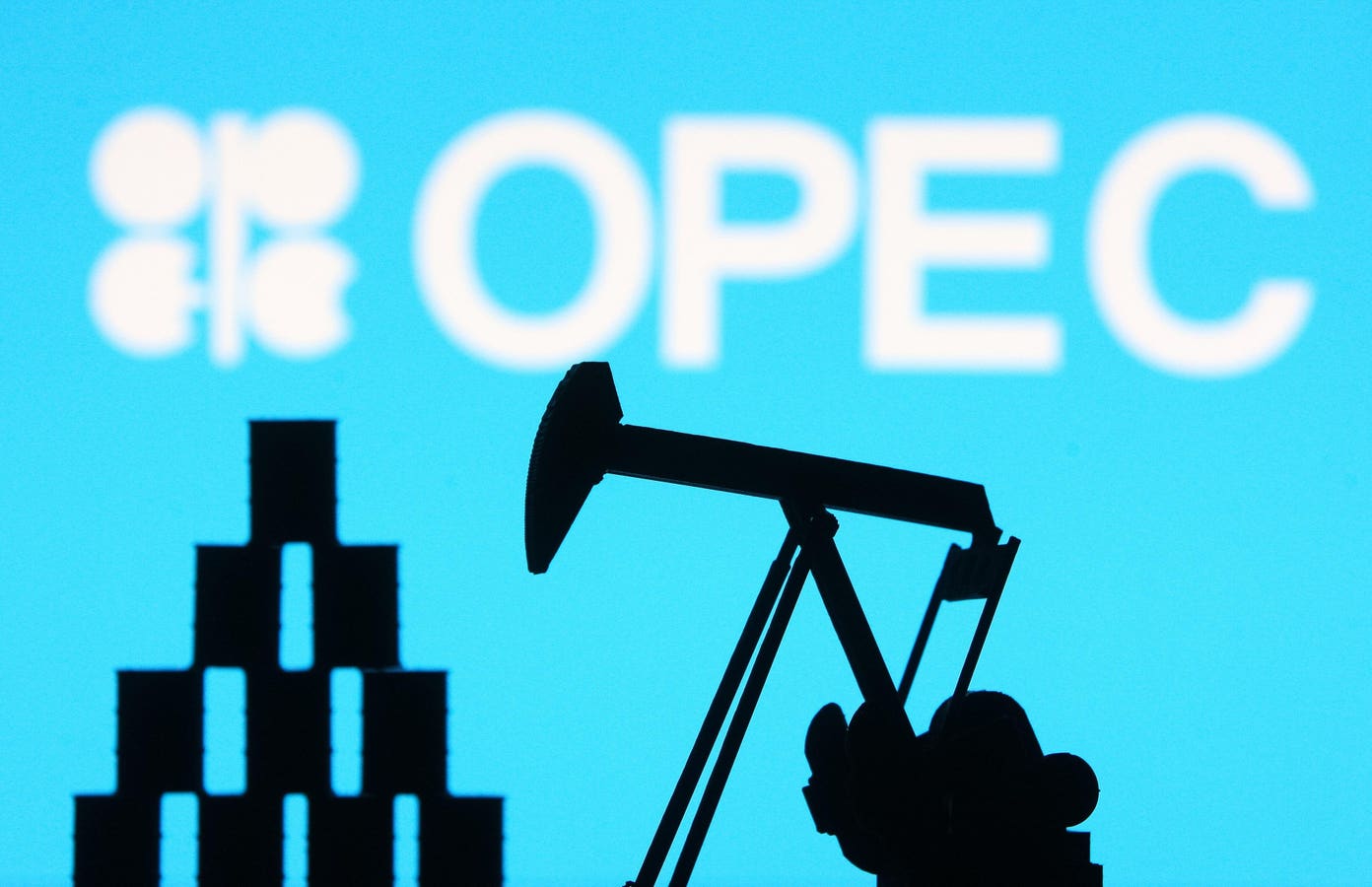The global oil market was greeted on Monday (November 13, 2023) by crude producers group OPEC’s swipe at “overblown” negative oil market sentiment in its latest monthly report.
Despite predictions of elevated risk premiums owing to conflict in the Middle East and a joint Saudi-Russian output cut of 1.3 million barrels per day (bpd), global proxy benchmark Brent has failed to breach $100 per barrel levels.
Quite the contrary, both Brent as well as U.S. benchmark West Texas Intermediate have recently shed most of their gains since October 7 – the date hostilities broke out between Israel and Hamas in Gaza, after the latter launched an attack on the former, provoking a fierce response from the Tzahal or Israel Defense Forces.
Both crude benchmarks also hit their lowest levels since July at one point on global demand concerns. However, OPEC believes such concerns have been blown out of proportion. Updating the market with its latest projections, the producers’ group said oil market fundamentals remain strong. It also kept its world oil demand growth forecast for 2024 unchanged at 2.25 million bpd.
For 2023, OPEC revised global demand growth projections marginally upward by 20,000 bpd to 2.5 million bpd. It commended the strength of the U.S. economy, flagged forecasts about rising Indian crude oil imports and dismissed market pessimism over economic activity in China.
“The latest data shows Chinese crude imports increasing to 11.4 million bpd in October, and remaining on track to reach a new annual record high for this year, at around the same level. In fact, the Chinese crude imports remained very healthy, at a record level that is well above the five-years average range…with year-on-year crude imports at 1.2 million bpd higher,” it said.
Echoing recent comments from Saudi Arabia’s Energy Minister Prince Abdulaziz bin Salman, OPEC also noted: “Despite favorable market fundamentals, oil prices have fallen in recent weeks, owing primarily to financial sector speculators.”
Are speculators really to blame?
This is a familiar line that OPEC has used before when the market doesn’t quite go the way it wants it to. As always, the reasons are somewhere in the modest middle. Speculators need a basis for speculating. Right now those who are net short, i.e. betting on the oil price falling, and inviting OPEC’s ire are the ones placing more emphasis on what will likely weigh on oil prices.
As OPEC puts it: “Potential downside risk to current robust global economic growth forecasts, although minor, may include sustained restrictive monetary policies to fight inflation, and geopolitical developments.”
Many, especially money managers, don’t deem these risks to be as minor as OPEC. On the demand side, I agree with OPEC’s assessment of rising U.S. consumption with the Northern Hemisphere’s winter approaching, as well as higher seasonal demand with the Thanksgiving and Christmas breaks to follow. Ditto applies to the group’s assessment of India’s rising imports.
How much of that demand is being, or will be, serviced by OPEC is of course questionable, especially in the case of India with its new found appetite for relatively cheaper Russian crude. However, concerns over China’s economic activity are not unfounded even if no one is predicting an economic catastrophe.
Its property and construction market is in a state of upheaval and there is high youth unemployment. OPEC loudly flags the IMF’s upward revision of China’s growth prospects to 5.4% (from 5%) for 2023.
But the IMF also warns of slower growth next year, projecting that China’s GDP will expand by 4.6% in 2024 primarily due to a weak “property sector” and subdued exports. This isn’t the sort of projection to fill anyone with confidence.
Meanwhile, real wages, i.e. earnings adjusted for inflation, in Japan – the world’s fourth-largest crude oil importer – fell for the 18th consecutive month in September, dropping by 2.4% from a year earlier.
And fears of a recession in Europe have not subsided at all. In fact, lackluster economic activity in the continent’s largest economy – Germany – is ringing alarm bells. Concurrently, the European Central Bank, Bank of England and Swiss Central Bank are all maintaining a high interest rate climate in step with the U.S. Federal Reserve.
Sum it all up, and the oil market is not in for an easy ride over the near-term. That’s precisely why geopolitical strife in the Middle East and production cuts have failed to support prices. So negative oil market sentiment is neither overblown nor nonexistent but somewhere in the modest middle – quite like current crude price levels.
Read the full article here


